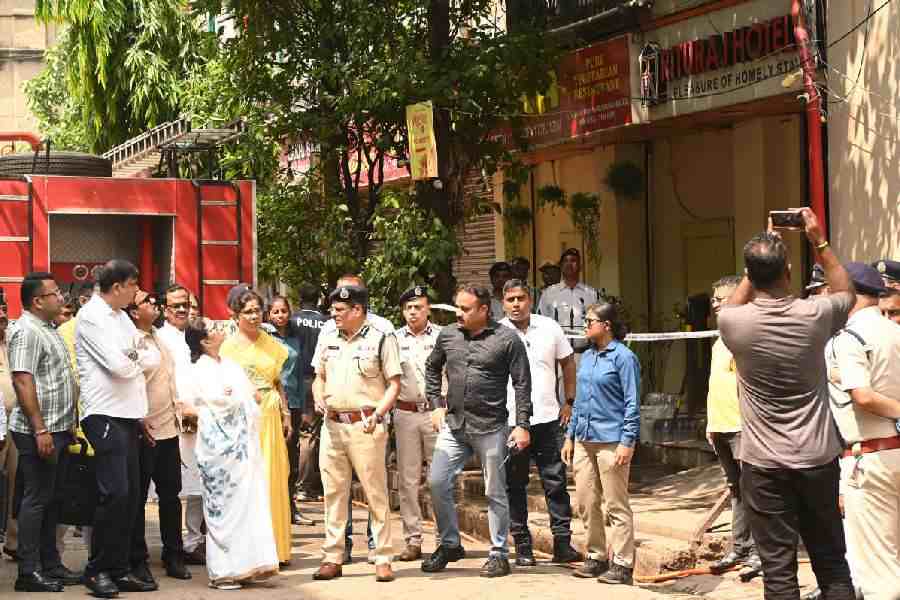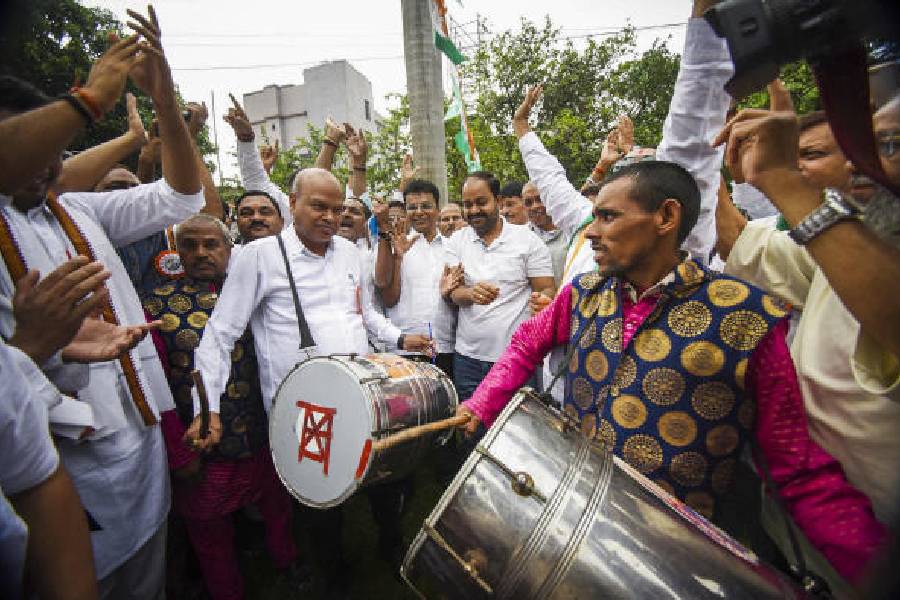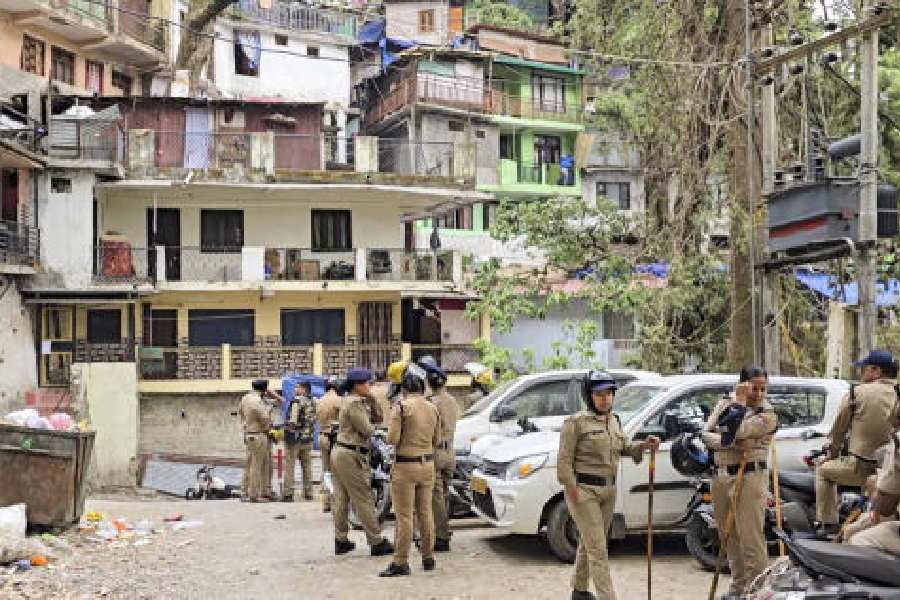 |
| Tribals take part in kati tournament at Jaipal Singh Munda stadium in Karandih on Sunday. Picture by Bhola Prasad |
Jamshedpur, March 27: Meet another warring twosome of sport, the kati and the tarhi.
Just like the willow and the ball or the racquet and the shuttlecock, each tries to outsmart or control the other. But the kati-tarhi duo has stayed largely out of the public eye, as the sport, kati, was born in the tribal hinterland of Jharkhand and Orissa and flourished there. With most tribal youths taking up mainstream sports such as archery, football, hockey, etc, the kati was dying a neglectful death.
That is, till Tata Steel decided to step in.
A professional kati match was played today at Jaipal Singh Munda Stadium at Karandih in the city’s outskirts today, organised by Tribal Cultural Society, a wing of Tata Steel.
This year, the Society organised preliminary rounds of the tourney at Kumrasol in Dumaria block, and Palidih, Kairasai and Tirildih, all in Potka block of East Singhbhum district, where a whopping 55 teams participated.
Four semi-finalists — BTMC Club (Dhoromdih), Rusik Gawnta (Bonga Dungri), both from Orissa, and LDBR Sports Club of Dumaria and RMMC Club of Potka — clashed in today’s match.
The game requires a keen eye, strong limbs and expert eye-hand-leg co-ordination. Each player have a kati or a semi-circular disc made of tamarind wood and tarhi or a 6ft long bamboo stick. All katis lie on the centre line of the makeshift ‘court’. Players try to propel the bamboo stick with their feet to hit the opponent’s kati. Every successful hit gets a score.
“The game was once the soul of tribes in Jharkhand and Orissa. But its popularity waned as tribals took to other sports,” said Ramchandra Tudu, an expert of the sport.
Tribal Cultural Society joint secretary Felix Ekka said they organised the tourney to revive and promote the game. “It is an interesting game. We also give cash rewards to the winning team and runners-up,” Ekka said, adding the champions would get Rs 7,000, while the first runner-up, Rs 5,000. Teams placed third and fourth will get Rs 3,000 each.
Player R.S. Kisku said kati was played on courts similar in size to ones used for badminton. “Usually 12 players comprise a team. The trick is to use fancy footwork to make the bamboo stick hit the rival’s kati. It’s not easy,” he beamed.










